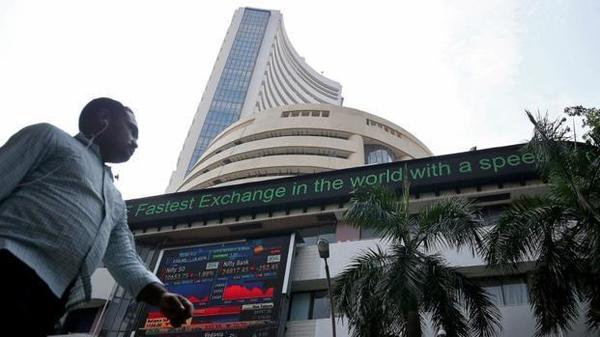The Ongoing Battle: Car Dealers Push Back Against EV Mandates

Table of Contents
The automotive industry is undergoing a seismic shift, and car dealerships are on the front lines. Government mandates pushing for electric vehicle (EV) adoption are creating significant economic and logistical challenges for dealerships nationwide. These EV mandates, while aiming for a greener future, are forcing dealerships to adapt rapidly, raising concerns about financial viability and operational efficiency. This article explores the key arguments against these mandates from the perspective of car dealerships, highlighting the hurdles they face and potential solutions for navigating this complex transition.
<h2>Financial Hurdles for Dealerships in Transitioning to EVs</h2>
The transition to an EV-centric market presents substantial financial obstacles for car dealerships. The required investments, coupled with potentially lower profit margins on EV sales, create a challenging economic landscape.
<h3>High Initial Investment Costs</h3>
Upgrading infrastructure to accommodate EVs represents a significant capital expenditure for dealerships. This includes substantial investments in:
- Fast Chargers: Installing Level 3 DC fast chargers requires significant upfront investment and ongoing maintenance costs.
- Specialized EV Maintenance Equipment: Dealerships need specialized tools and diagnostic equipment to service EV batteries, electric motors, and other components, adding to the overall expense.
- Technician Retraining: Training existing technicians on EV repair and maintenance is crucial but time-consuming and costly. This often involves sending technicians to specialized training programs or bringing in external trainers.
Industry reports suggest that the total cost of upgrading a dealership to handle EVs can easily run into hundreds of thousands of dollars, placing a significant strain on smaller dealerships' finances. One study estimated that the average dealership might need to invest upwards of $250,000 to be fully EV-ready.
<h3>Lower Profit Margins on EV Sales</h3>
Currently, profit margins on EV sales are generally lower than those on gasoline-powered vehicles. Several factors contribute to this:
- Lower Service Revenue Potential: EVs have fewer moving parts than internal combustion engine (ICE) vehicles, leading to potentially less frequent and less lucrative service appointments.
- Increased Competition: The EV market is becoming increasingly competitive, with both established and new automakers vying for market share. This increased competition can pressure dealerships to reduce prices, further impacting profit margins.
Data from several independent analyses suggest that the profit margin on a typical EV sale is approximately 10-15% lower than the margin on a comparable gasoline-powered vehicle, putting significant pressure on dealership profitability.
<h3>Inventory Management Challenges</h3>
Managing EV inventory presents unique logistical complexities:
- Longer Lead Times: EVs often have longer lead times from manufacturers than gasoline vehicles. This makes it difficult to forecast demand and maintain optimal inventory levels.
- Varying Charging Requirements: The variety of charging technologies and standards adds to the complexity of inventory management, requiring dealerships to invest in charging infrastructure compatible with a range of EVs.
- Potential for Stranded Inventory: If consumer demand for a particular EV model falters, dealerships could be left with unsold inventory, tying up capital and potentially leading to losses.
These challenges necessitate sophisticated inventory management systems and careful demand forecasting to minimize risks and maximize profitability.
<h2>Logistical Challenges of EV Adoption</h2>
Beyond the financial aspects, several logistical challenges hinder the widespread adoption of EVs and present difficulties for dealerships.
<h3>Lack of Consumer Demand in Certain Regions</h3>
EV adoption rates vary significantly across geographical regions. Dealerships located in areas with low EV demand face unique logistical challenges:
- Limited Charging Infrastructure: Rural areas often lack the necessary public charging infrastructure to support widespread EV adoption, discouraging potential buyers.
- Lower Consumer Awareness: Consumer awareness of EVs and their benefits may be lower in some regions, leading to decreased demand.
This uneven distribution of EV adoption creates significant challenges for dealerships, requiring them to tailor their sales and marketing strategies to specific regional conditions.
<h3>Charging Infrastructure Gaps</h3>
The current lack of robust public charging infrastructure is a major impediment to EV adoption. This directly impacts dealerships in several ways:
- Inadequate Number of Charging Stations: The scarcity of public charging stations, especially fast chargers, creates “range anxiety” among potential EV buyers, hindering sales.
- Long Charging Times: Even with available chargers, long charging times are a deterrent for many consumers.
- Range Anxiety Concerns: The fear of running out of charge before reaching a charging station remains a significant barrier for many potential EV buyers.
Addressing these infrastructure gaps is essential for facilitating wider EV adoption and reducing the logistical burdens on dealerships.
<h3>Technician Training and Skill Gaps</h3>
Servicing and repairing EVs requires specialized training and skills. Dealerships are facing a significant challenge in acquiring this expertise:
- Cost and Time Involved in Training: Training existing technicians or hiring new ones with EV expertise involves significant costs and time commitments.
- Shortage of Qualified EV Technicians: There is a current shortage of qualified EV technicians, creating competition for skilled labor and driving up training costs.
Addressing this skills gap through government-supported training programs and industry partnerships is vital for ensuring the smooth transition to EVs.
<h2>Counterarguments and Potential Solutions</h2>
While the challenges are significant, there are counterarguments and potential solutions to mitigate the impact of EV mandates on car dealerships.
<h3>Government Incentives and Support</h3>
Government incentives, such as tax credits for EV purchases and grants for charging infrastructure development, are designed to encourage EV adoption and ease the transition for dealerships. However, the effectiveness of these incentives varies, and many dealerships argue they are insufficient to offset the financial burden of transitioning to EVs.
<h3>Collaboration and Industry Partnerships</h3>
Collaboration between dealerships, manufacturers, and government agencies is essential to overcome the challenges related to infrastructure, training, and consumer awareness. This could involve joint ventures for charging infrastructure development, collaborative training programs for technicians, and coordinated marketing campaigns to educate consumers.
<h3>Long-Term Economic Benefits</h3>
While the short-term challenges are undeniable, the long-term economic benefits of EV adoption are significant. This includes the potential for increased service revenue from battery replacements and other EV-specific repairs, as well as the opportunity to capture a larger share of the growing EV market.
<h2>Conclusion: Navigating the EV Mandate Battle</h2>
The transition to electric vehicles presents significant financial and logistical hurdles for car dealerships. The high initial investment costs, lower profit margins on EV sales, inventory management challenges, and infrastructure gaps pose considerable threats to the viability of many dealerships. However, collaboration, government support, and a focus on the long-term benefits of EV adoption are crucial for navigating this challenging landscape. Stay informed on the evolving landscape of EV mandates and their impact on the automotive industry. Continue the conversation by sharing your thoughts and perspectives on this critical issue.

Featured Posts
-
 White Houses Last Minute Surgeon General Nominee Swap A Maha Influencer Takes The Helm
May 10, 2025
White Houses Last Minute Surgeon General Nominee Swap A Maha Influencer Takes The Helm
May 10, 2025 -
 Samuel Dickson Influence And Impact On The Canadian Lumber Industry
May 10, 2025
Samuel Dickson Influence And Impact On The Canadian Lumber Industry
May 10, 2025 -
 Open Ai 2024 New Tools For Streamlined Voice Assistant Development
May 10, 2025
Open Ai 2024 New Tools For Streamlined Voice Assistant Development
May 10, 2025 -
 High Potentials Bold Finale Why Abc Was Impressed
May 10, 2025
High Potentials Bold Finale Why Abc Was Impressed
May 10, 2025 -
 Suncors Record Production A Closer Look At Sales Slowdown And Inventory Buildup
May 10, 2025
Suncors Record Production A Closer Look At Sales Slowdown And Inventory Buildup
May 10, 2025
Latest Posts
-
 Stock Market Update Sensex Nifty 50 Unchanged Amidst Geopolitical Concerns
May 10, 2025
Stock Market Update Sensex Nifty 50 Unchanged Amidst Geopolitical Concerns
May 10, 2025 -
 Povernennya Kinga Politichni Poglyadi Ta Kritika
May 10, 2025
Povernennya Kinga Politichni Poglyadi Ta Kritika
May 10, 2025 -
 India Stock Market Today Sensex And Nifty 50 Close Choppy Trading Session
May 10, 2025
India Stock Market Today Sensex And Nifty 50 Close Choppy Trading Session
May 10, 2025 -
 Stiven King Gostri Slova Na Adresu Trampa Ta Maska
May 10, 2025
Stiven King Gostri Slova Na Adresu Trampa Ta Maska
May 10, 2025 -
 Sensex Nifty 50 End Flat Bajaj Twins Losses And Geopolitical Tensions Weigh
May 10, 2025
Sensex Nifty 50 End Flat Bajaj Twins Losses And Geopolitical Tensions Weigh
May 10, 2025
